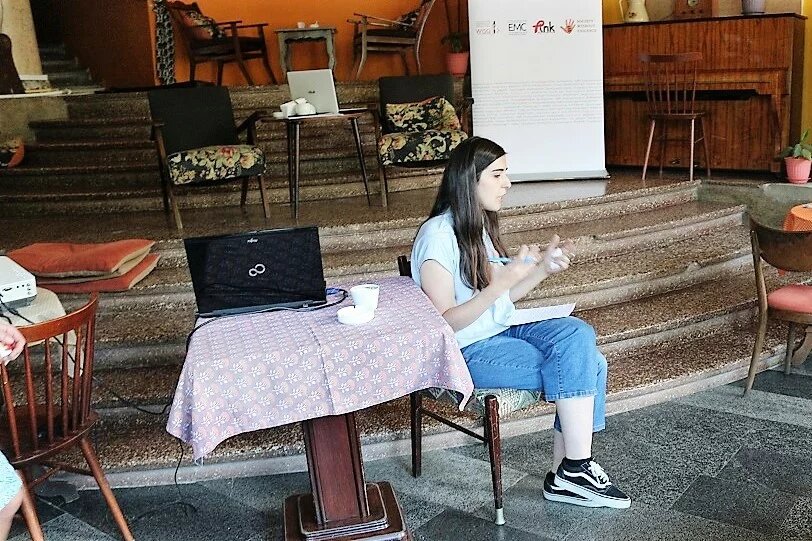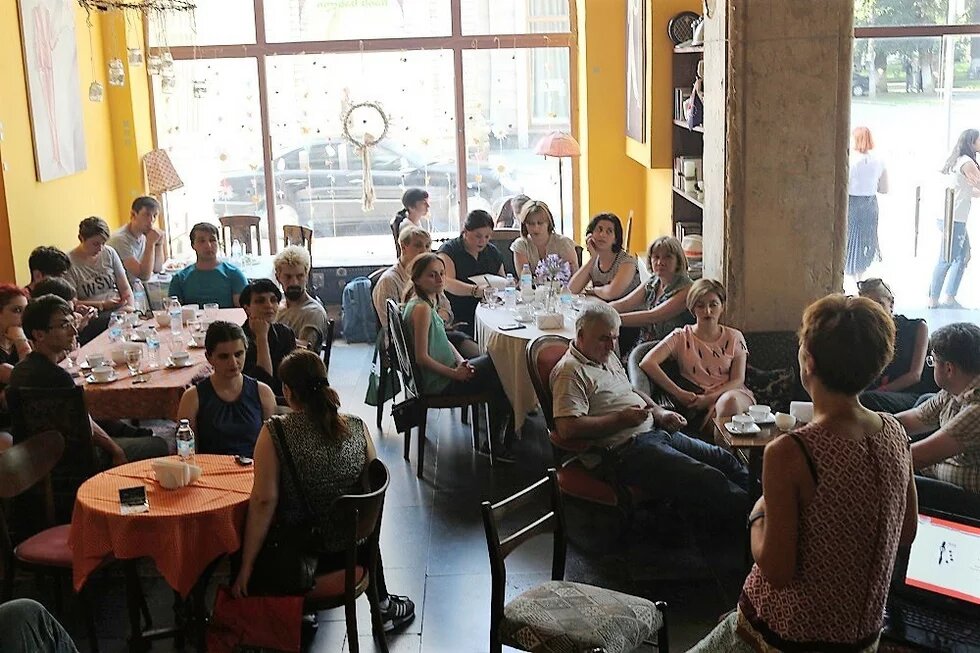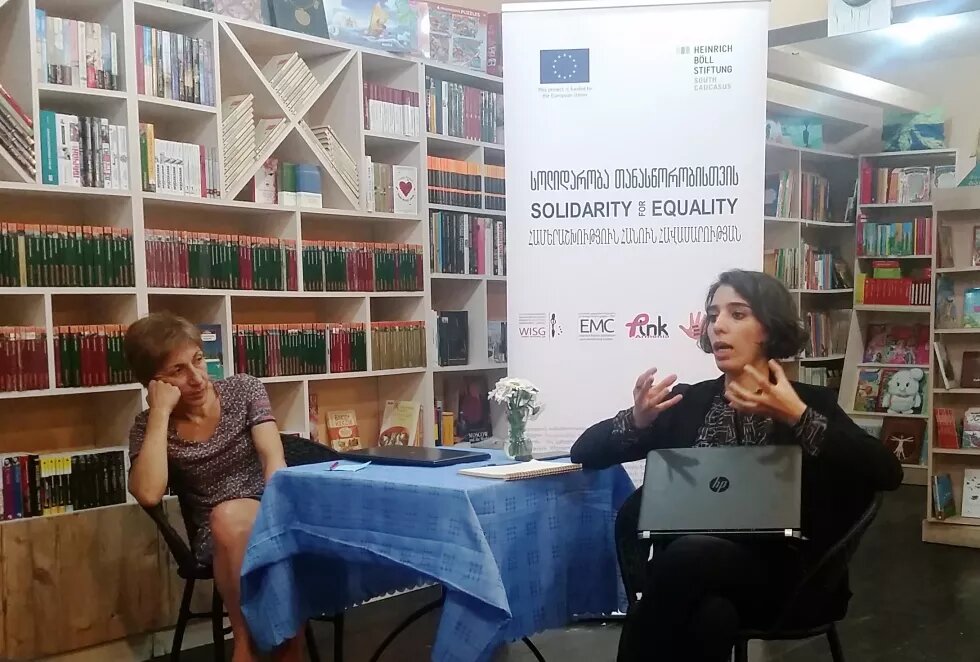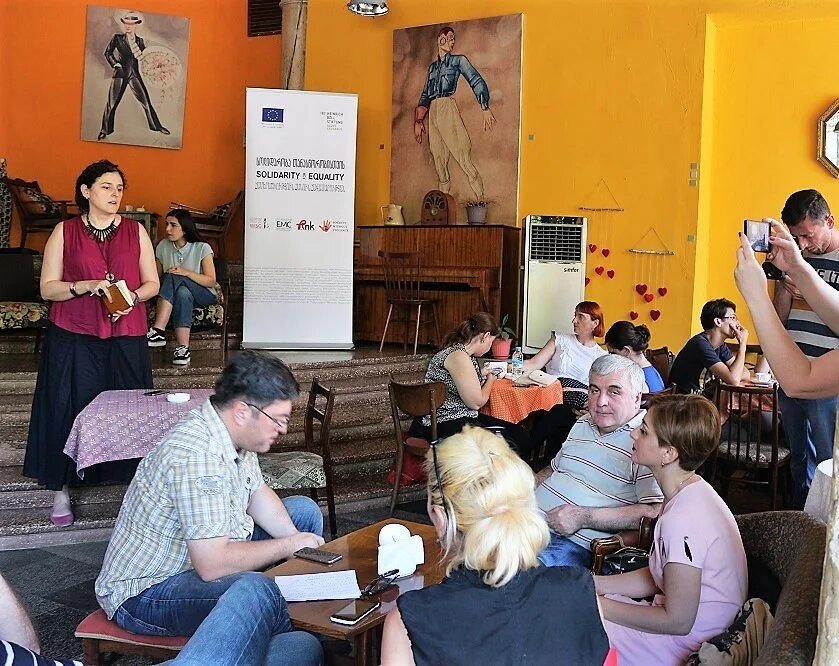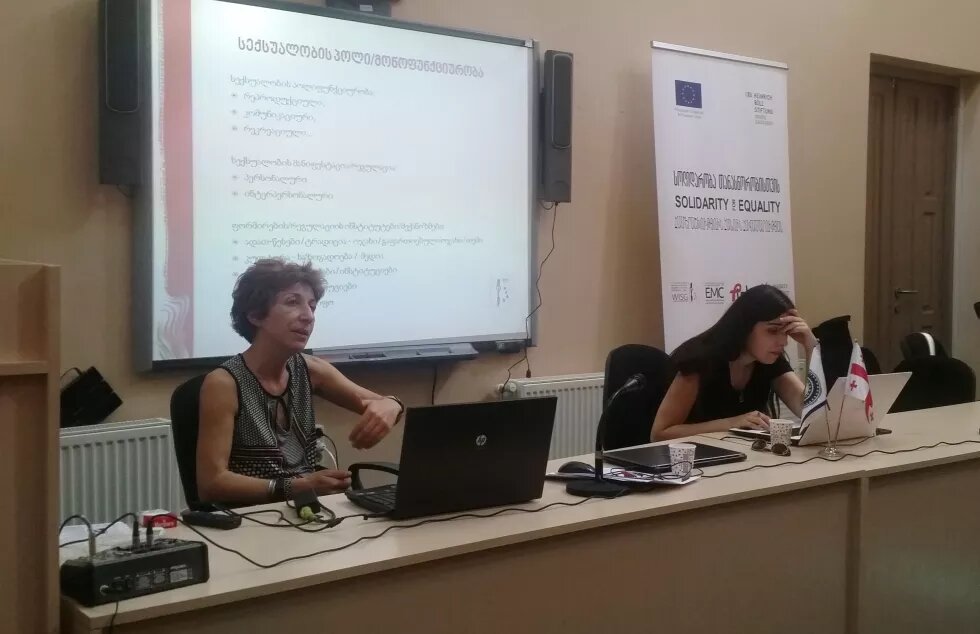
On June 30, July 13, and July 14, the Heinrich Boell Foundation South Caucasus Regional Office, in cooperation with project partners, the Women's Initiatives Supporting Group (WISG) and the Human Rights Education and Monitoring Center (EMC) held the remaining three of the series of LGBTI-focused public discussions in Gori, Kutaisi and Batumi.
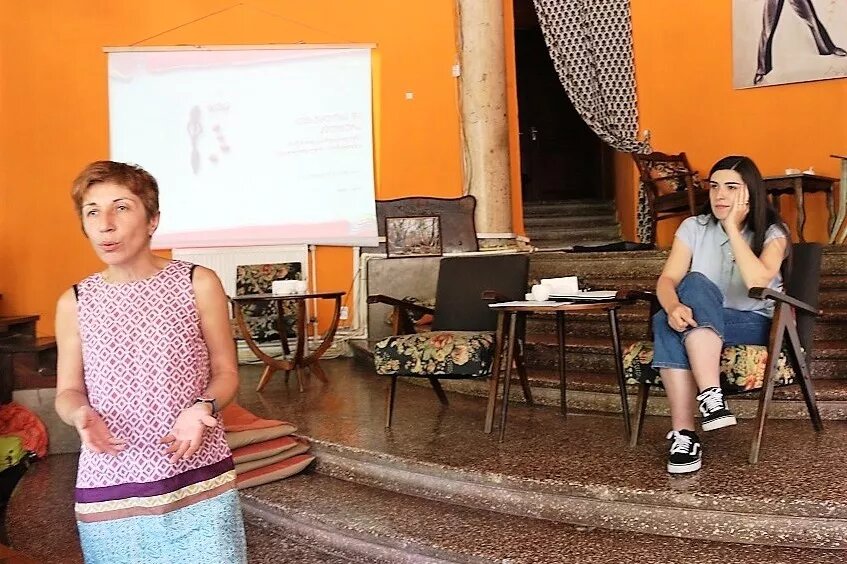
On June 30, July 13, and July 14, the Heinrich Boell Foundation South Caucasus Regional Office, in cooperation with project partners, the Women's Initiatives Supporting Group (WISG) and the Human Rights Education and Monitoring Center (EMC) held the remaining three of the series of LGBTI-focused public discussions in Gori, Kutaisi and Batumi.
The topics of the public discussions focused on two major concepts: the first centred on dissecting the Soviet legacy in terms of repressed sexuality, ideologised homophobia, the alteration and progression of Soviet state policy towards sexuality and with it – homosexuality, family and marital relations, gender roles, and the concept of femininity/masculinity, as well as the way sexual and reproductive health and rights and associated legislation are perceived in the post-Soviet Georgia.
The second topic explored the interconnection of and challenges associated with religion and sexuality. The speakers covered sexuality as perceived in a narrow framework, Soviet experience where sex was taboo and sexuality was (and continues to be) viewed through the moral, rather than the human rights lens. Different views of sexuality, in terms of sexual orientation, gender identity and gender roles were also discussed.
As in the previous case of the public discussion focusing on the political instrumentalisation of LGBTI issues held in early May 2017 in Tbilisi, the concepts stemmed from the findings of the comprehensive study of homo/bi/transphobic attitudes conducted by WISG, the analysis of the legal situation of LGBTI persons implemented by EMC, as well as the long-term advocacy strategy document/declaration against discrimination based on sexual orientation and gender identity in Georgia.
The public discussion in Gori and Kutaisi, which took place in the premises of the Gori State Teaching University and a social café in Kutaisi, respectively, featured distinguished panelists Eka Aghdgomelashvili of WISG, who focused on the historical context of the perception of sexuality and attitudes that continue to differ across cultures and epochs; sexual taboos, regulations on marriage/divorce, the concepts of abortion and maternity leave; the Soviet state’s emancipation of women from the constraints of family via introducing state-run child care services, and the simultaneous perpetuation of women as asexual reproduction machines, being stripped of caretaking obligations; the decriminalisation, re-criminalisation, and ideologisation of homosexuality; the revival (influential until the present day) of anti-Western sentiment in the post-Soviet space, including the use of homophobia as a political tool.
Lika Jalagania of EMC proceeded with a comprehensive discussion around domestic violence and femicide being attributed to the fact that men are frequently left at home without a job, which strips them of breadwinner status and justifies aggression against women. Ms. Jalagania also covered such concepts as the regulation of women’s bodies, the rise and radicalisation of anti-gender groups, abortion being used as a family planning service for women. She highlighted the notion that the anti-discrimination law was largely adopted in order to fulfill the international obligations taken on by Georgia and in order to achieve benchmarks under the Visa Liberalisation Action Plan (VLAP). Ms. Jalagania also underscored the significance of government intervention and action in such areas as legal gender recognition, the collection and processing of hate crime statistics, and the lack of relevant education and awareness in society. She also brought attention to recent positive steps taken by the Government, including specific legislation against domestic violence (adopted in 2006), the establishment of the Femicide Watch platform by the Public Defender’s Office, and the ratification of the Istanbul Convention.
The discussion on the topic of religion and sexuality held in Batumi on July 13 featured Eka Aghdgomelashvili (WISG) and Tamta Mikeladze (EMC), who spoke about the mythological context, including the notions of sexuality in Aboriginal, Egyptian, Greek, and Persian mythology; various cults, sects, and the perception of sexuality throughout history; the concepts of androgyny, hermaphroditism, prostitution, two-spiritism; celibacy in Catholicism and the total rejection of sexual behaviour, as well as castration as a physical manifestation of celibacy versus the other extreme, where sex acts are/were seen as the ultimate way to be close to God. Ms. Aghdgomelashvili expounded on the notion that the criminalisation and persecution of homosexuality in Eastern cultures began only after European colonisation. Major religions, such as Judaism, Christianity and Islam are the most “oppressive” in terms of sexuality, via associating it with sin. Ms. Aghdgomelashvili concluded her engaging talk by describing the relatively young science of sexology and the notions that it has put forward, including such terms as “sexual deviation”.
Ms. Mikeladze continued the evening by presenting a comprehensive analysis of the Orthodox Church and its control of sexuality, as well as the anti-gender and populist rhetoric of ultranationalist groups; she reviewed why and how the Church has become a strong political actor, including historical aspects of the rise of the Church, the Soviet legacy, where the Church was highly repressed and expelled from the public sphere. Ms. Mikeladze also offered a breakdown of the sermons of the Patriarch of Georgia, Ilia II, focusing on the sanctity of the family and the necessity to stick to specific hierarchies, underpinned and justified by Christianity, which in turn empowers masculinity and patriarchy.
During each of the discussions, Anne Nemsitsveridze-Daniels and Eka Tsereteli of HBF, also spoke about the development and significance of the long-term advocacy strategy document/declaration on combating homo/bi/transphobic discrimination, which was developed via a lengthy multistakeholder process, and at the time of the events, had gathered up to 40 endorsers among civil society representatives and other organisations and individuals.
Even though the event held in Gori was not attended by a sufficient number of participants due to several objective reasons, the discussions held in Kutaisi and Batumi were very successful and attracted a significant audience.
Following the presentations, a comprehensive and multifaceted discussion took place, where attendees posed questions and offered comments to the panelists. The discussion revolved around the concepts and ideas of the instrumentalisation of women by the Church; the privileges and disadvantages of the Georgian society; the idea of same-sex marriage; the persecution of individuality; the demonisation of homosexuality and the perception of the latter as a mortal sin.
The attending public expressed a very high interest in the discussion topics, as well as materials about the content of the discussions, including the LGBTI-focused studies produced by WISG and EMC within the framework of the EU-funded project.
The series of public discussions was organised within the framework of the EU-funded action, Solidarity Network for LGBTI in Armenia and Georgia.
